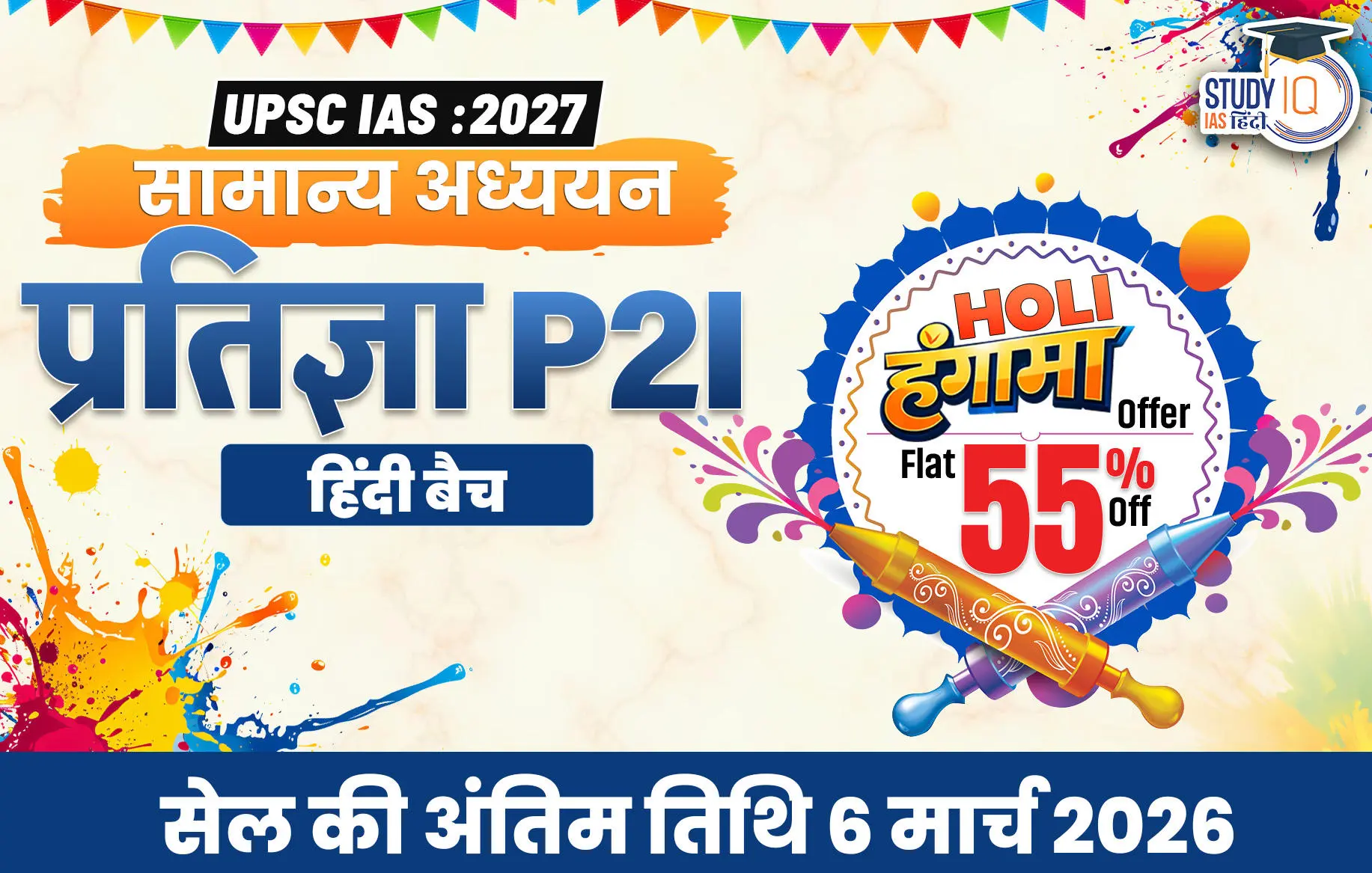Q.13 Examine the factors responsible for depleting groundwater in India. What are the steps taken by the government to mitigate such depletion of groundwater? (15 Marks, 250 Words)
| Approach |
| Start by introducing India’s status as the largest groundwater extractor and highlight the scale of over-exploited blocks (CGWB 2022). In the body, discuss the factors behind depletion – over-extraction in agriculture, monsoon variability, rising urban/industrial demand, concretization, weak regulation, and neglect of traditional water systems, citing data and examples. Then explain the government’s mitigation steps – policy frameworks (Atal Bhujal Yojana, National Aquifer Mapping, National Water Policy), regulatory measures (CGWA, rainwater harvesting mandates, extraction charges), agricultural reforms (PMKSY, Per Drop More Crop, crop diversification), recharge initiatives (Jal Shakti Abhiyan, MGNREGA), and technology-driven approaches (Bhu Neer Portal, AI & satellite mapping). Conclude by emphasizing community participation and sustainable cropping as the way forward for balancing agriculture, urbanization, and climate resilience in ensuring water security. |
India is the largest extractor of groundwater in the world, accounting for 25% of global extraction and is facing alarming depletion. The Dynamic Groundwater Resources Report (2022) shows that 1,006 blocks in 14 states are over-exploited, raising serious concerns about sustainability.
Factors Responsible for Depleting Groundwater in India
- Agriculture: Free or subsidized electricity for pumps and assured procurement of paddy and wheat encourage overuse in areas like Punjab, Haryana and western UP.
- Further, water-guzzling crops (e.g., sugarcane in Maharashtra) worsen groundwater depletion
- Eg: NASA’s GRACE (2019) showed aquifers in Punjab & Haryana falling by 1–1.5 feet annually.
- Monsoon Dependency and Climate Variability: With 60% of farming rain-fed, erratic rainfall forces dependence on tube wells.
- Eg: IMD noted 12 of 15 years since 2005 had below-average monsoons, worsening depletion.
- Rising Domestic Demand: Urban groundwater extraction is rising due to population growth, illegal borewells, and over-reliance on private tankers.
- Eg: NITI Aayog (2018) warned 21 cities, including Delhi and Bengaluru, could run out by 2030.
- Urbanization and Concreatization: Concrete expansion reduces rainwater infiltration and depletes groundwater.
- E.g., A study by the Indian Institute of Science (IISc) in Bengaluru found a 1055% increase in paved surfaces (buildings, roads, etc.) between 1973 and 2023.
- Industrial Use and Pollution: Industries like textiles and paper overdraw and pollute aquifers with untreated effluents.
- Eg: Arsenic in Ganga basin, fluoride in Rajasthan, and nitrate in Punjab show this dual stress.
- Weak Regulatory Framework: Groundwater is a state subject and is often linked to land rights (Easement Act 1882) enabling unrestricted drilling of borewells.
- Absence of strict enforcement of the Model Groundwater Bill has perpetuated misuse. (CGWB, 2022).
- Decline in Traditional Water Systems: Neglect of tanks, ponds, and wetlands has reduced recharge capacity.
- Eg: Encroachment of lakes in cities like Chennai and Hyderabad worsened water scarcity during droughts.
Steps taken by the government to mitigate Groundwater Depletition
Policy and Legislative Measures
- Atal Bhujal Yojana: It is a World Bank assisted central sector scheme, with a goal of community-led sustainable groundwater management.
- National Project on Aquifer Management aims to map the sub-surface water-bearing geological formations in India for informed decision-making.
- Region-wise aquifer management plans are prepared and shared with states to facilitate better management of groundwater resources.
- National Water Policy (2012): Emphasizes sustainable groundwater management.
Regulatory Measures
- Central Groundwater Board promotes sustainable development and management of Ground Water Resources in India.
- The Central Ground Water Authority (CGWA) was constituted under the EPA1986 for the regulation and control of groundwater development and management in the country.
- Mandatory rainwater harvesting in urban areas like Chennai and Gurugram.
- Groundwater extraction charges introduced for industries in 2020.
Agricultural Reforms
- Pradhan Mantri Krishi Sinchayee Yojana (PMKSY): Promotes efficient irrigation (“Har Khet Ko Pani”).
- Per Drop More Crop: Encourages micro-irrigation (drip and sprinkler systems).
- Shifting cropping patterns: Haryana and Punjab incentivizing diversification from paddy to maize, pulses, and oilseeds.
- Smart meters for agricultural pumps in Gujarat’s Jyotigram Scheme.
Recharge and Conservation Initiatives
- Jal Shakti Abhiyan (2019): Focus on rainwater harvesting, afforestation, and watershed management.
- Mahatma Gandhi NREGA: Used for construction of check dams, ponds, and percolation tanks.
- Eg: Andhra Pradesh’s Panta Sanjeevani project improved recharge via farm ponds.
Technological and Community Approaches
- Bhu Neer Portal: An initiative by the Central Ground Water Authority (CGWA), it is a digital platform designed to facilitate efficient and transparent management of groundwater resources in India.
- Composite Water Management Index is a tool developed by the NITI Aayog to assess and improve the performance of states in the efficient management of water resources.
Integrating community-driven groundwater budgeting with modern tools like AI-based monitoring and satellite mapping can ensure sustainability. Ultimately, groundwater management must balance agricultural needs, urban growth, and climate resilience, making it a cornerstone of India’s long-term water security.

 UPSC Final Result 2025 Soon: Check CSE M...
UPSC Final Result 2025 Soon: Check CSE M...
 UPSC Correction Window 2026: Dates, Dire...
UPSC Correction Window 2026: Dates, Dire...
 UPSC CSE 2026 Last Date Extended to 27 F...
UPSC CSE 2026 Last Date Extended to 27 F...




















